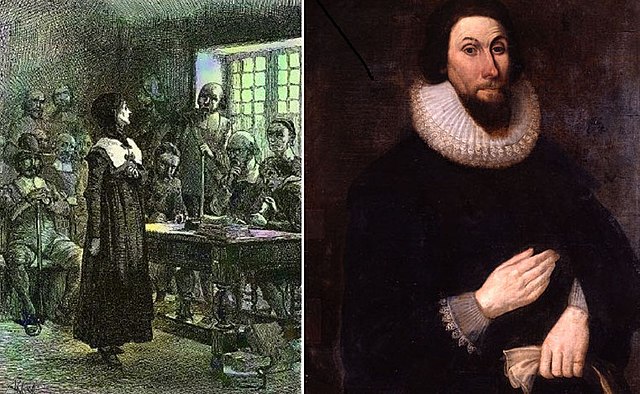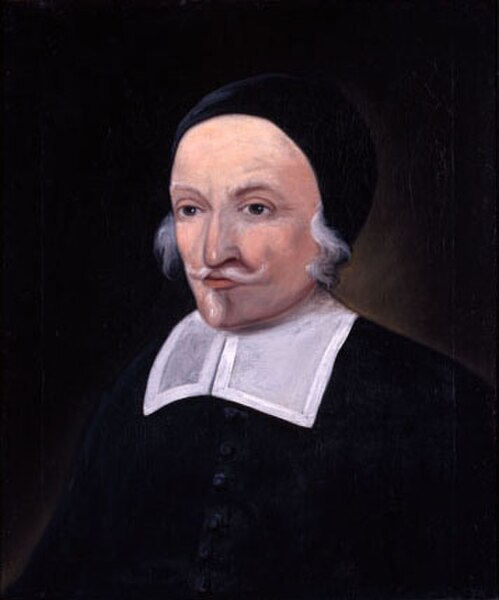Samuel Wilbore was one of the founding settlers of Portsmouth in the Colony of Rhode Island and Providence Plantations. He emigrated from Essex, England to Boston with his wife and three sons in 1633. He and his wife both joined the Boston church, but a theological controversy began to cause dissension in the church and community in 1636, and Wilbore aligned himself with John Wheelwright and Anne Hutchinson, signing a petition in support of dissident minister Wheelwright. In so doing, he and many others were disarmed and dismissed from the Boston church. In March 1638, he was one of 23 individuals who signed a compact to establish a new government, and this group purchased Aquidneck Island, then known as "Rhode Island", from the Narragansett Indians at the urging of Roger Williams, establishing the settlement of Portsmouth.
The last will and testament of Samuell Wilbore. April 30, 1656
Portsmouth Compact with Wilbore's signature sixth on the list
The Antinomian Controversy, also known as the Free Grace Controversy, was a religious and political conflict in the Massachusetts Bay Colony from 1636 to 1638. It pitted most of the colony's ministers and magistrates against some adherents of Puritan minister John Cotton. The most notable Free Grace advocates, often called "Antinomians", were Anne Hutchinson, her brother-in-law Reverend John Wheelwright, and Massachusetts Bay Governor Henry Vane. The controversy was a theological debate concerning the "covenant of grace" and "covenant of works".
Anne Hutchinson at trial and John Winthrop
John Cotton was Hutchinson's mentor.
Henry Vane the Younger
John Wheelwright's fast-day sermon fanned the flames of the controversy.






